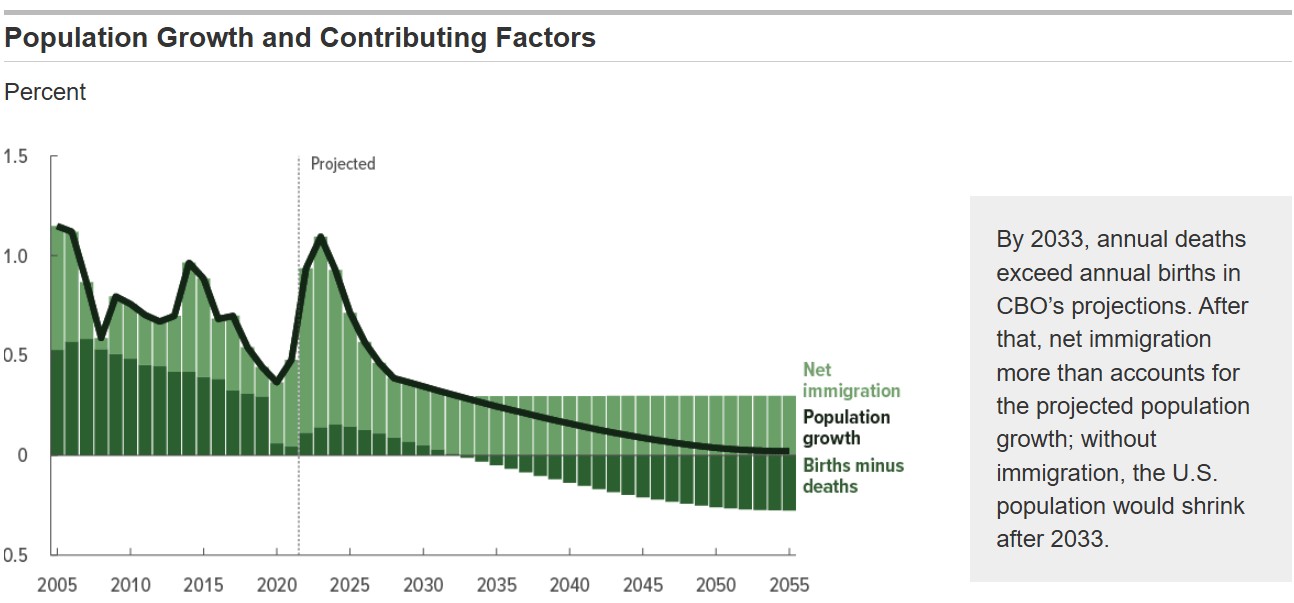
The Congressional Budget Office (CBO) released a sobering report Thursday warning that the United States faces potential population decline by 2033 if immigration levels are not maintained, highlighting immigration's critical role in sustaining American economic growth.
The report, which analyzes budget and economic trends from 2025 to 2055, points to declining birth rates as a key factor making the U.S. increasingly reliant on immigrant workers to maintain population growth and economic expansion.
This demographic shift arrives amid broader economic challenges. The CBO projects U.S. public debt will reach 156% of GDP by 2055, while forecasting slower economic growth over the next three decades compared to previous estimates.
The population warning comes at a sensitive political moment, as it appears to conflict with proposed policies aimed at restricting immigration and conducting mass deportations. Economic experts note that population decline could negatively impact living standards and create difficulties funding crucial programs like Social Security that depend on payroll taxes from working-age residents.
Treasury Secretary Scott Bessent has challenged the CBO's projections, calling their scoring methodology "crazy" while promoting an alternative "3-3-3" economic plan. This plan aims to reduce the federal deficit to 3% of GDP, achieve 3% annual GDP growth, and increase oil production by 3 million barrels daily by 2028.
The situation could worsen if certain tax provisions are extended. Michael A. Peterson, CEO of the Peterson Foundation, warns that extending tax cuts could push debt to 214% of GDP, with potential increases to 250% if interest rates rise more than expected.
The CBO report emerges as lawmakers face pressing decisions about the U.S. debt ceiling, with projections showing the country could reach its borrowing limit as soon as July or August without congressional action.
This comprehensive analysis presents clear evidence that immigration plays a fundamental role in maintaining U.S. population levels and economic stability, even as political debate continues over immigration policy direction.